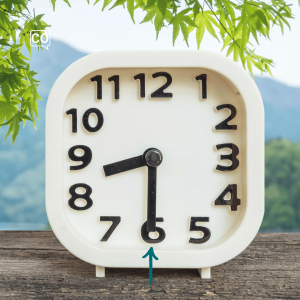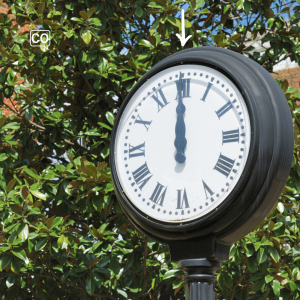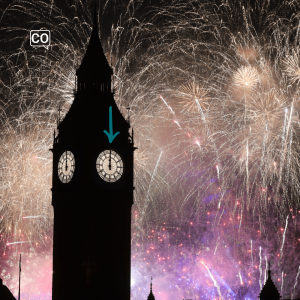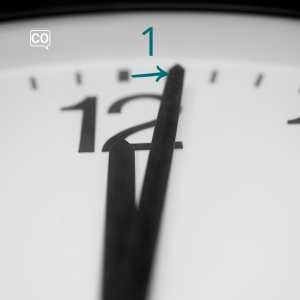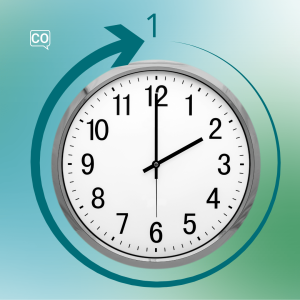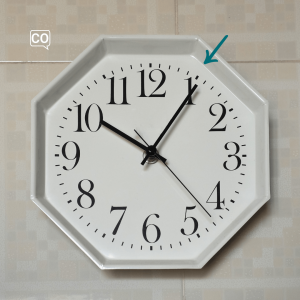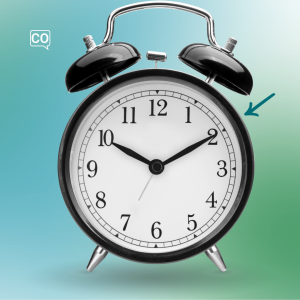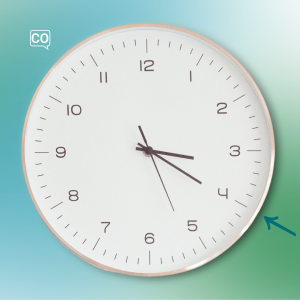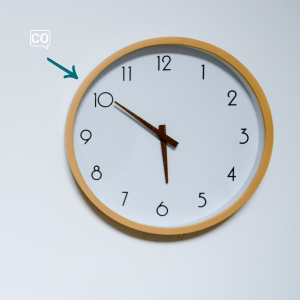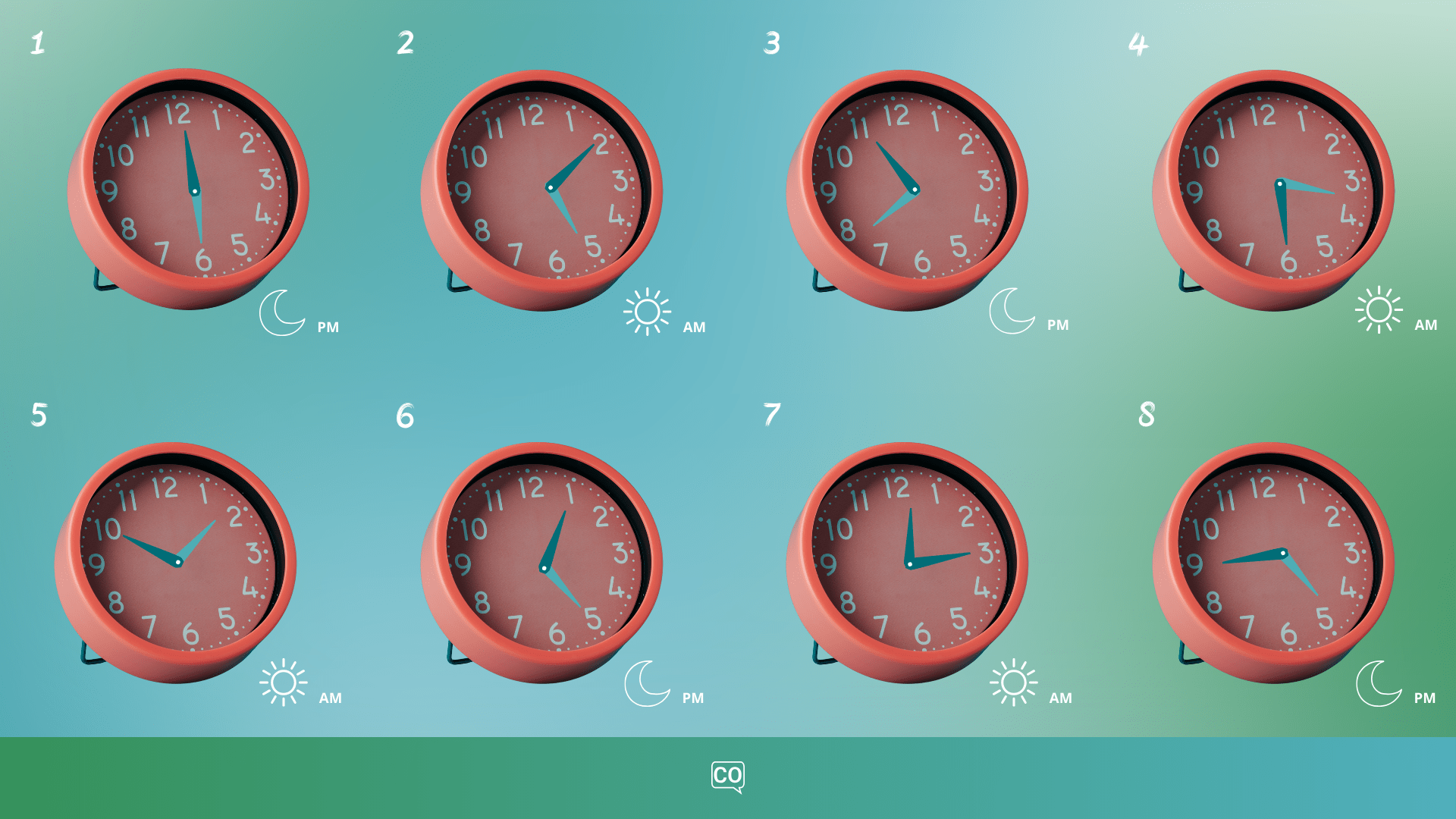Decir la hora y leer el reloj

Learning goals:
- Preguntar y decir la hora (Ask and tell the time)
- Lee el reloj (Read the clock)
- ¿Cómo decir la hora? (How to tell the time?)
- Los Relojes de Dalí (The Clocks of Dalí)
Learning module 2 (A1): De horas a estaciones (From hours to seasons)
Recap exercises of the previous lesson
Teaching guidelines +/- 60 minutes
Core vocabulary (23)
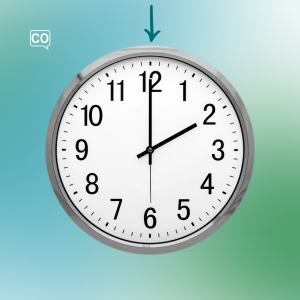
El tren llega a la estación en punto.
(The train arrives at the station on the dot.)
En punto
(On the dot)
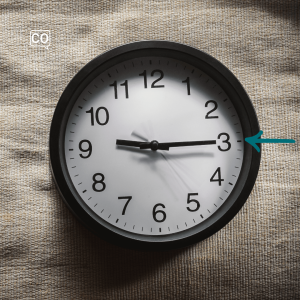
Son las tres y cuarto de la tarde.
(It is quarter past three in the afternoon.)
Y cuarto
(And a quarter)
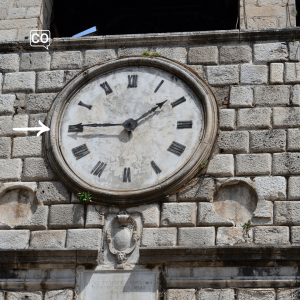
Son las cinco menos cuarto de la tarde.
(It's quarter to five in the afternoon.)
Menos cuarto
(Quarter to)
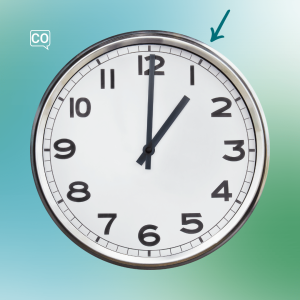
Es la una en punto de la tarde y hace mucho calor.
(It's one o'clock in the afternoon and it's very hot.)
Es la una
(It's one o'clock)

¿Qué hora es? Son las tres y cuarto de la tarde.
(What time is it? It's quarter past three in the afternoon.)
¿Qué hora es?
(What time is it?)
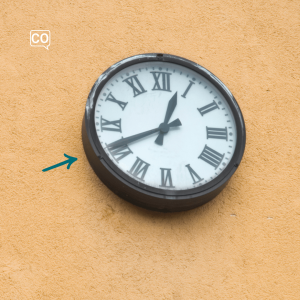
Son las ocho menos veinte de la mañana.
(It is twenty to eight in the morning.)
Menos veinte
(Twenty to)

Son las ocho menos cinco de la mañana, es decir, cinco minutos antes de las ocho.
(It's five to eight in the morning, that is, five minutes before eight.)
Menos cinco
(Five to)

Son las ocho y media de la mañana.
(It is eight thirty in the morning.)
De la mañana
(In the morning)

Son las cinco de la madrugada y estoy viendo el amanecer.
(It is five in the early morning and I am watching the sunrise.)
De la madrugada
(In the early morning)
Listening materials
Our listening materials implement the verbs, vocabulary and grammar topics of this lesson. Audio and video available!
A1.13.1 Diálogo: ¿Qué hora es?
Spanish A1.13.1 What time is it?
Pedro y Ana hablan sobre la hora en un diálogo corto y fácil. Aprende a leer el reloj y a decir la hora en español.
(Pedro and Ana talk about the time in a short and easy dialogue. Learn to read the clock and say the time in Spanish.)
Teaching guidelines +/- 15 minutes
A1.13.2 Gramática: ¿Cómo decir la hora?
Spanish A1.13.2 How to tell the time?
A1.13.3 Cuento corto: Cada minuto cuenta
Spanish A1.13.3 Every minute counts
Sigue a Carlos mientras revisa la hora a lo largo del día. Aprende a decir la hora en español.
(Follow Carlos as he checks the time throughout the day. Learn to tell the time in Spanish.)
Teaching guidelines +/- 15 minutes
A1.13.4 Cultura: Los Relojes de Dalí
Spanish A1.13.4 The Clocks of Dalí
Aprende sobre el tiempo y su significado a través de una pintura española de Salvador Dalí.
(Learn about time and its meaning through a Spanish painting by Salvador Dalí.)
Teaching guidelines +/- 10 minutes
Exercises
These exercises can be done together during conversation lessons or as homework.
Exercise 1: Find the words
Instruction: Find the words, mark them and make sentences with the words.
Show answers Show hintsHints
The midnight , The time , To arrive , To mark , Five to , And five
Answers
Score: 0/6
| Llegar | (To arrive) |
| Menos cinco | (Five to) |
| La hora | (The time) |
| Y cinco | (And five) |
| Marcar | (To mark) |
| La medianoche | (The midnight) |
Exercise 2: Reorder sentences
Instruction: The words in these sentences have been shuffled! Sort them so that they make a valid sentence again and translate.
Show answers Show translationExercise 3: Translate and make sentences
Instruction: Translate the words and phrases below and use it in a conversation or text.
Show answersExercise 4: Translate and use in a sentence
Instruction: Translate and say the word out loud. Use the word in a sentence.
Show translation|
1.
¿Qué hora es?
|
(What time is it?) |
|
2.
Y cinco
|
(And five) |
|
3.
De la mañana
|
(In the morning) |
|
4.
De la tarde
|
(In the afternoon) |
|
5.
Y media
|
(Half past) |
Exercise 5: Conjugación verbal
Instruction: Choose the correct word, read the sentence out loud and translate.
Show answers Show translationLlegar (Presente, indicativo), Leer (Presente, indicativo)
1. Tú ... justo a tiempo para la reunión.
2. Vosotros ... siempre antes de que empiece la película.
3. Vosotros ... en voz alta.
4. Tú ... muy rápido.
5. Ella ... a la escuela a las 8 en punto.
Exercise 6: How to tell the time?
Instruction: Choose the correct word, read the sentence out loud and translate.
Show answers Show translationcuatro y cuarto, once y cinco, diez menos cuarto, la una, dos y cinco, cinco, ocho y media
1. 09:45 AM: Son las ... de la mañana.
2. 5:00 AM: Son las ... de la mañana.
3. 23:05 PM: Son las ... de la noche.
4. 2:05 AM: Son las ... de la noche.
5. 20:30 PM: Son las ... de la noche.
6. 13:00 PM: Es ... en punto de la tarde.
7. 16:15 PM: Son las ... de la tarde.
Exercise 7: Translate and make sentences
Instruction: Translate the words and phrases below and use it in a conversation or text.
Show answersConversation exercise
Teaching guidelines +/- 10 minutes
- Di qué hora es en cada imagen. (Say what time it is on each picture.)
Example phrases:
- Son las tres y media. (It's half past 3. )
- ...
Appendix 1: Extended vocabulary table
Core vocabulary
(23):
Verbs: 2,
Interjection: 16,
Nouns: 4,
Sentences / word combination: 1
Context vocabulary:
3
| Spanish | English |
|---|---|
| De la madrugada | In the early morning |
| De la mañana | In the morning |
| De la noche | At night |
| De la tarde | In the afternoon |
| El mediodía | The noon |
| El minuto | The minute |
| En punto | On the dot |
| Es la una | It's one o'clock |
| La hora | The time |
| La medianoche | The midnight |
| Llegar | To arrive |
| Marcan | Mark |
| Marcar | To mark |
| Menos cinco | Five to |
| Menos cuarto | Quarter to |
| Menos diez | Ten to |
| Menos veinte | Twenty to |
| Relojes | Watches |
| Son las | It's |
| Tiempo | Time |
| Y cinco | And five |
| Y cuarto | And a quarter |
| Y diez | And ten |
| Y media | Half past |
| Y veinte | Twenty past |
| ¿Qué hora es? | What time is it? |
Appendix 2: Verb conjugation tables for this lesson
Leer (to read)
Exercises and examples phrases
- yo leo I read
- tú lees you read
- él/ella lee he reads
- nosotros/nosotras leemos we read
- vosotros/vosotras leéis you read
- ellos/ellas leen They read
Llegar (to arrive)
Exercises and examples phrases
- yo llego I arrive
- tú llegas You arrive
- él/ella llega he arrives
- nosotros/nosotras llegamos we arrive
- vosotros/vosotras llegáis you arrive
- ellos/ellas llegan they arrive
Exercise: Verb conjugation
Instruction: Choose the correct word, read the sentence out loud and translate.
Show answers Show translationLeer (Presente, indicativo), Llegar (Presente, indicativo)
1. Él ... el periódico todas las mañanas.
2. Vosotros ... en voz alta.
3. Nosotros ... juntos en clase.
4. Ellos ... a la fiesta con regalos.
5. Ella ... a la escuela a las 8 en punto.
